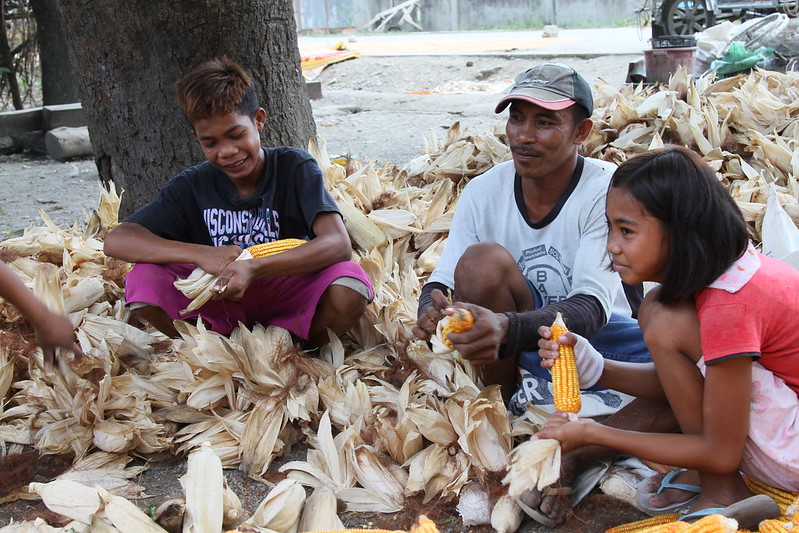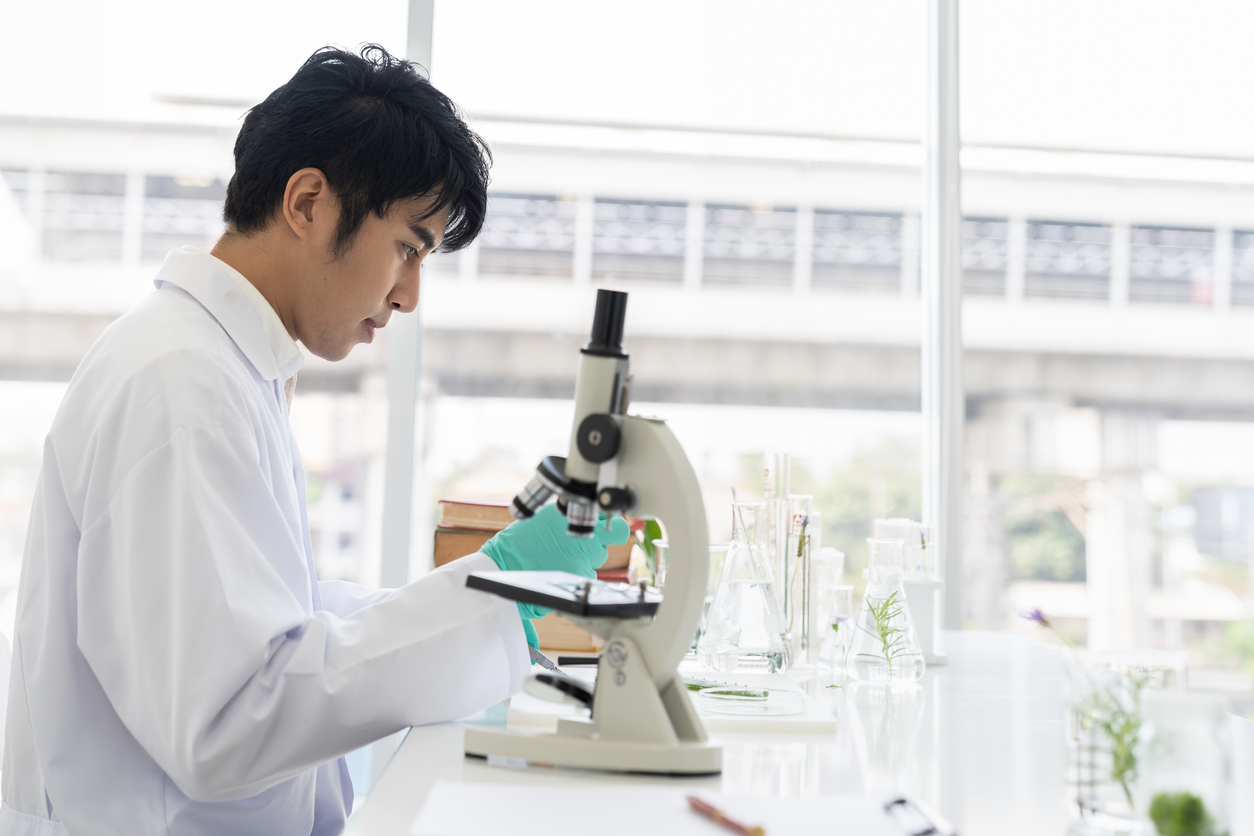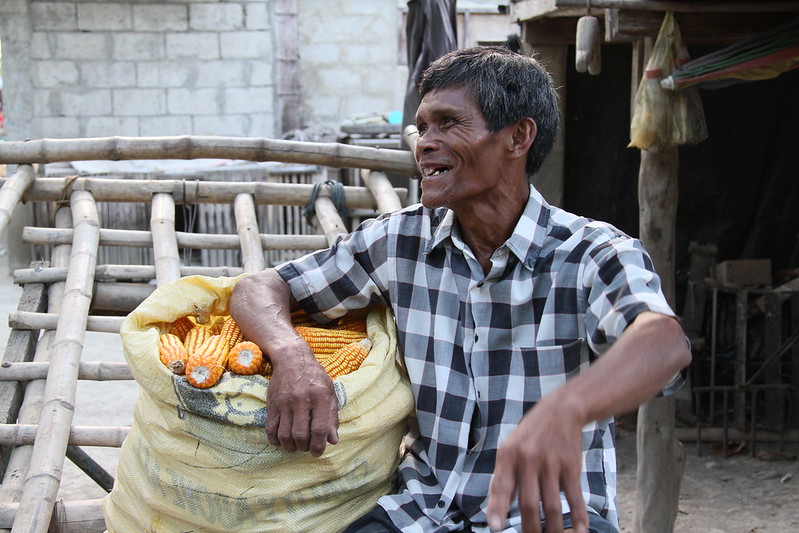Philippines Updates Biotech Regulations to Benefit More Farmers and Consumers
| |
In 2003, the Philippines made a historical mark in the field of biotechnology when it became the first country in Southeast Asia to plant a biotech crop. As of 2019, the country ranked 12th among the 29 countries planting biotech crops worldwide with 875,000 hectares planted to biotech corn. However, almost two decades after Bt corn was approved in the country, it remains to be the only widely cultivated biotech crop in the Philippines. Several challenges caused delays in the approval and release of GM crops in the country.

Bt eggplant trials
After Bt corn, many Filipino farmers expected that the next biotech crop to be available for cultivation was the insect resistant Bt eggplant. However, just when the multi-location field trials of Bt eggplant were completed in 2012, biotech critics filed cases against the research. This led to a series of events that eventually gave rise to the Supreme Court’s decision to nullify the biotech guidelines known as the Department of Agriculture Administrative Order No. 8 (DA AO8). The Court required the issuance of new regulatory guidelines for the safety assessment of biotech plant products.
New biotech guidelines
The National Committee on Biosafety of the Philippines (NCBP) initiated the drafting of a new set of biotech guidelines. After expert deliberations and public consultations, the Joint Department Circular (JDC) on Rules and Regulations for the Research and Development, Handling and Use, Transboundary Movement, Release into the Environment, and Management of Genetically-Modified Plant and Plant Products Derived from the Use of Modern Biotechnology was finalized. In April 2016, the Circular was approved and signed by the secretaries of the Philippine government's Departments of Agriculture, Science and Technology (DOST), Environment and Natural Resources (DENR), Health (DOH), and Interior and Local Government (DILG).
With the implementation of the JDC, biotech crop developers continued to encounter delays in the approval of biotech crops. Thus, the Philippine government sought to improve the bureaucratic process and speed up the approval of biotech crops, which are necessary in attaining food and feed needs of the country. After careful review of the JDC in 2021, amendments were approved and put in place in March 2022.

Improvements in the biotech guidelines
One of the major changes in JDC 2021 is the compliance to the Republic Act No. 11032 or the Ease of Doing Business and Efficient Government Service Delivery Act of 2018. Thus, the revisions include simplified requirements and procedures and shortened processing time of applications. These amendments will reduce the red tape and expedite the approval process for products of modern biotechnology.
Another new feature of the Circular is the formation of a Joint Assessment Group (JAG) composed of qualified representatives or personnel from the Biosafety Committees and external technical experts. The JAG will be in charge of evaluating whether the regulated article does not pose greater risks to human health and the environment than its conventional counterpart. The Group, which will also include External Technical Experts from DOST, DA, DENR, and DOH will then make recommendations to the BPI Director.
Information on socio-economic, cultural, and ethical considerations may be submitted by the public during the public consultation process and this will be considered by the BPI Director, together with the technical evaluation on the safety of the product by the Joint Assessment Group, in the approval. For the field trial, a contingency plan in case of force majeure or intrusions in the field trial site has been added in the supporting documents required.
The period for public comments has been reduced from 60 days to 15 working days, starting from the publication of the public information sheet on one newspaper of general circulation.
The Circular also indicated that regulation of stacked plants developed through conventional breeding of GM parental lines with approved individual events is not considered novel. Therefore, the permit holder may request listing of their stacked events in the BPI Approval Registry for commercial propagation of direct use.
The JDC 2021 emphasizes that products of new breeding innovations that do not contain novel combinations of genetic materials obtained through modern biotechnology are not covered by the Circular. DA released a separate set of rules for gene-edited plants.
Guidelines for plant breeding innovations
In May 2022, DA released the rules and procedures for the evaluation of products of plant breeding innovations (PBI). The regulations, marked as Memorandum Circular No. 8, Series of 2022 (MC8), provide a science-based and efficient process for assessment and determination of gene-edited plants if they are to be considered genetically engineered (GE) or not.
NCBP defines PBIs as a new set of molecular genomics and cellular techniques for targeted and efficient development of new and improved crop varieties in a faster and more precise manner compared to conventional methods. Section 1 of MC8 states that products of PBI with a novel combination of genetic material derived from the use of modern biotechnology are considered genetically engineered and will have to follow the rules and regulations for such prior to release. Without the presence of a novel combination of genetic material, the PBI product will be considered a conventional product.

The developer must submit a request to the Director of the Bureau of Plant Industry for Technical Consultation for Evaluation and Determination for the PBI product to be evaluated as genetically engineered or conventional. If the product is declared as non-GE, a Certificate of Non-Coverage from the JDC 2021 will be released to the developer and to the public.
Impact of regulatory improvements
The recent changes in the biotech regulations of the Philippines provide an enabling environment for the development and release of more crops designed to improve the lives of Filipino farmers and consumers. Since the primary purpose of regulation is to attain quality control of biotech and its products, the safety and efficacy of these technologies are safeguarded. The regulatory process is meant to be cooperative to ensure that the biotech products developed in the country deliver their value to the economy. These factors also translate to a more favorable acceptance of biotechnology, which facilitates better adoption of these products. It is expected that the 673,000 farmers benefiting from biotechnology since 2003 will grow in number in the next years to come.

For further reading:
The Trial of Bt Talong Field Trials
Biotech Country Facts and Trends: Philippines
APEC Economies Discuss Developments in Biotech Regulations
| Newer Post | Archive | Older Post |
Science Speaks is ISAAA Inc.'s official blog. Weekly blog articles, authored by ISAAA writers, partners, and invited contributors, aim to help share, disseminate, and promote scientific knowledge and its vital role in achieving global agricultural sustainability and development. Your support to Science Speaks will help us achieve this goal. You can help us by donating as little as $10.

